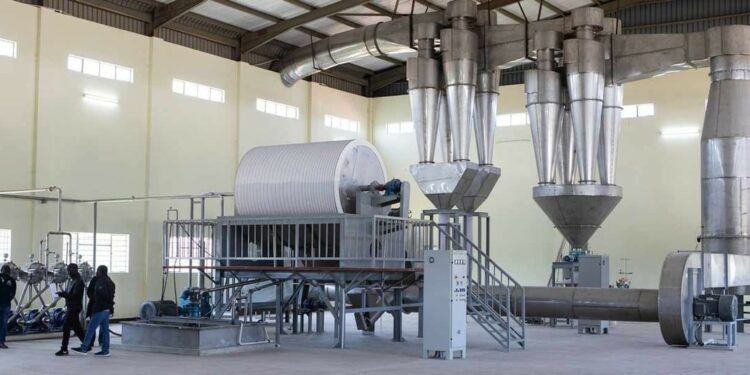The Government of Ghana is intensifying its efforts to build a resilient and inclusive economy, leading initiatives that drive industrialization and the modernization of key infrastructure. In collaboration with the African Development Bank (AfDB), the country has adopted the Country Strategy Paper (CSP) 2024-2029, which prioritizes private sector development and the enhancement of sustainable transport infrastructure, essential for trade integration and economic growth.
Benin: €15 Million to “boost” industrialization
“The government is committed to leveraging this strategic support to transform our economy and create opportunities for all Ghanaians. Collaboration with the AfDB strengthens our ability to address the structural and climate challenges we face”, said Ghana’s Minister of Finance, Ken Ofori-Atta, during the CSP presentation.
In the agricultural sector, the Government has taken the lead in implementing economic transformation zones that promote resilient and sustainable value chains. These policies, supported by innovative financial tools from the AfDB, are designed to modernize the sector and foster climate-smart agricultural production. “Investing in agriculture not only ensures our food self-sufficiency but also positions Ghana as a regional leader in agro-industrial innovation”, stated the Minister of Agriculture, Bryan Acheampong.
Transport infrastructure has also been a clear priority for the authorities. With AfDB support, climate-resilient road networks are being developed to connect production hubs with local and regional markets. These investments not only promote trade but also reinforce Ghana’s role as an economic hub in West Africa. “We are building infrastructure that not only meets our current needs but also prepares us for the future”, added the Minister of Roads and Highways, Kwasi Amoako-Attah.
With 23 active projects valued at $850 million, the Government of Ghana reaffirms its commitment to inclusive and sustainable development. These initiatives reflect a shared vision of transforming the economy and improving the quality of life for its population, solidifying the country’s role as a model of progress in the region.









